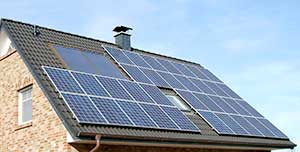
By Shira Laucharoen
The Somerville Commission on Energy Use and Climate Change (CEUCC) convened on April 11 at the Somerville City Hall to design new initiatives and reflect on recently passed legislation relating to sustainability. The chief topics discussed during the meeting were shadow carbon pricing and recent state-level developments.
The Commission explored the idea of creating a culture of shadow accounting in order to keep track of and raise awareness of carbon emissions. Carbon pricing is the practice of charging a tax on the release of carbon into the atmosphere as a method of combatting global warming. In the case of Somerville, this cost would be a “shadow price” generated with the purpose of building consciousness, rather than a real monetary charge.
Commission members also questioned what stakeholders would be allied with this project and might have the attention of the mayor. Director of Sustainability and Environment for the City of Somerville Oliver Sellers-Garcia suggested that SomerStat, the Mayor’s Office of Innovation and Analytics, as well as the city’s Purchasing Department would be good candidates.
The meeting moved on to consider updates on new state-level developments, looking at three different pieces of legislation. Members reviewed the Environmental Bond Bill, which provides funding for the Department of Conservation and Recreation and the Executive Office of Energy and Environmental Affairs. They also tangentially visited the Municipal Vulnerability Preparedness Grant Program, which offers funding to create a process for identifying hazards and climate related challenges.
The Commission discussed the Energy Omnibus Bill, which aims to provide a path towards renewable energy, sets targets for emission reductions, and plans to curb fossil fuel usage. Finally, members looked at Governor Charlie Baker’s new bill requiring that by 2021, people selling their homes must complete an energy scorecard. This legislation has been met by some opposition by the realtor lobby.
The CEUCC’s purpose is to counsel the city on climate change and clean energy issues, collaborating in the design of related programs. The Commission has helped to develop an energy performance contract for city buildings, spoken out about transportation alternatives, and created outreach concerning greenhouse gas impacts. The group meets every month, and sessions are open to the public.












Reader Comments